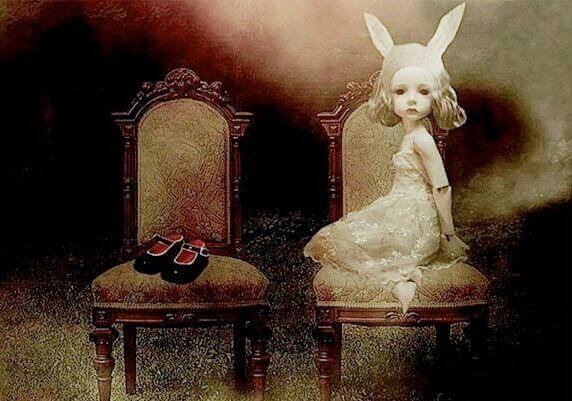Childhood is the stage of life in which we begin to know the world, to develop and to manage what we live with, on the other hand, it is a period in which we are especially vulnerable and dependent, so what happens has many possibilities. clinging to our roots, being difficult to change.
This applies to a positive and negative childhood, and the subsequent results are totally different, it is an advantage or disadvantage that gives us luck and somehow we do not have much to do.
- Often.
- In series or films.
- The profile of a disturbed person who had a childhood full of complicated relationships appears.
- Directly or indirectly.
This period, like the rest of us who make up our life story, once it has elapsed will not return, a toxic childhood results in a sad, unhappy or complicated childhood.
Often, the fact that we have not been able to live these years satisfactorily fills us with bitterness towards these people for who have very deep feelings, that is, our emotional bonds of childhood tend to survive, many times, in a confrontation between love and love. Resentment.
Thus, the feelings found are not the result of chance, but of the subsequent assessment of injustices, mistrust, fear, abandonment and humiliation that we once had to endure.
The way we relate to each other begins to develop in our early years. We learn how to express ourselves or how to deal with silences for effective communication.
On the other hand, bad patterns such as violence or coercion are very easy to learn and reproduce, but not so much to replace when they have been experienced as a useful and possible means of achieving a goal.
In this sense, even if lack of skills is not something we cannot correct over time, it hinders the development of our social and emotional potential, so let’s say that at some point we are likely to pay a high price.
Toxic childhood education not only refers to the lack of affection or the continued suffering of unwarranted punishment of indifference, it is also about living with people who never recognize their mistakes or overprotect the child, preventing him from facing the mistakes he makes and projecting. an image of invulnerability and perfection with which they will have to live later.
In this sense, the person grows believing that he is what he is not, which translates into a lack of knowledge that will bear fruit over time.
Mathematics, science, languages . . . all these subjects are part of all academic projects, but something as everyday and useful as emotional management is (or was) out of any kind of systematic training.
Just because no one bothered to teach us how to deal with our emotions doesn’t mean we haven’t learned it, the thing is, we learn for ourselves by observing others.
Thus, a toxic creation often has to do with reference people or relatives with an undeveloped emotional intelligence, it can be very toxic in our childhood because it makes us vulnerable to the most fundamental of our lives.
The creative style in which we live will determine the path by which we will take the education of the children around us in our adult lives, although it is true that in many cases certain patterns or behaviors are unconsciously repeated, the effort that is made to reorient our lives in a healthy way is much greater.
Thus, even if people who have had a difficult childhood have a more complicated development, they can resurface and overcome what they have been denied.
In this way, over time, they will stand out more for what they have achieved than for what has caused them to create toxic, becoming people worthy of admiration.

